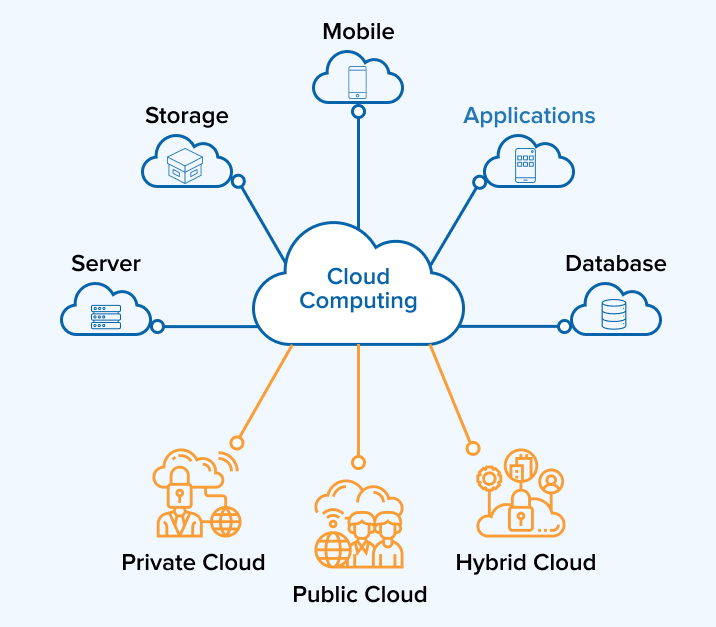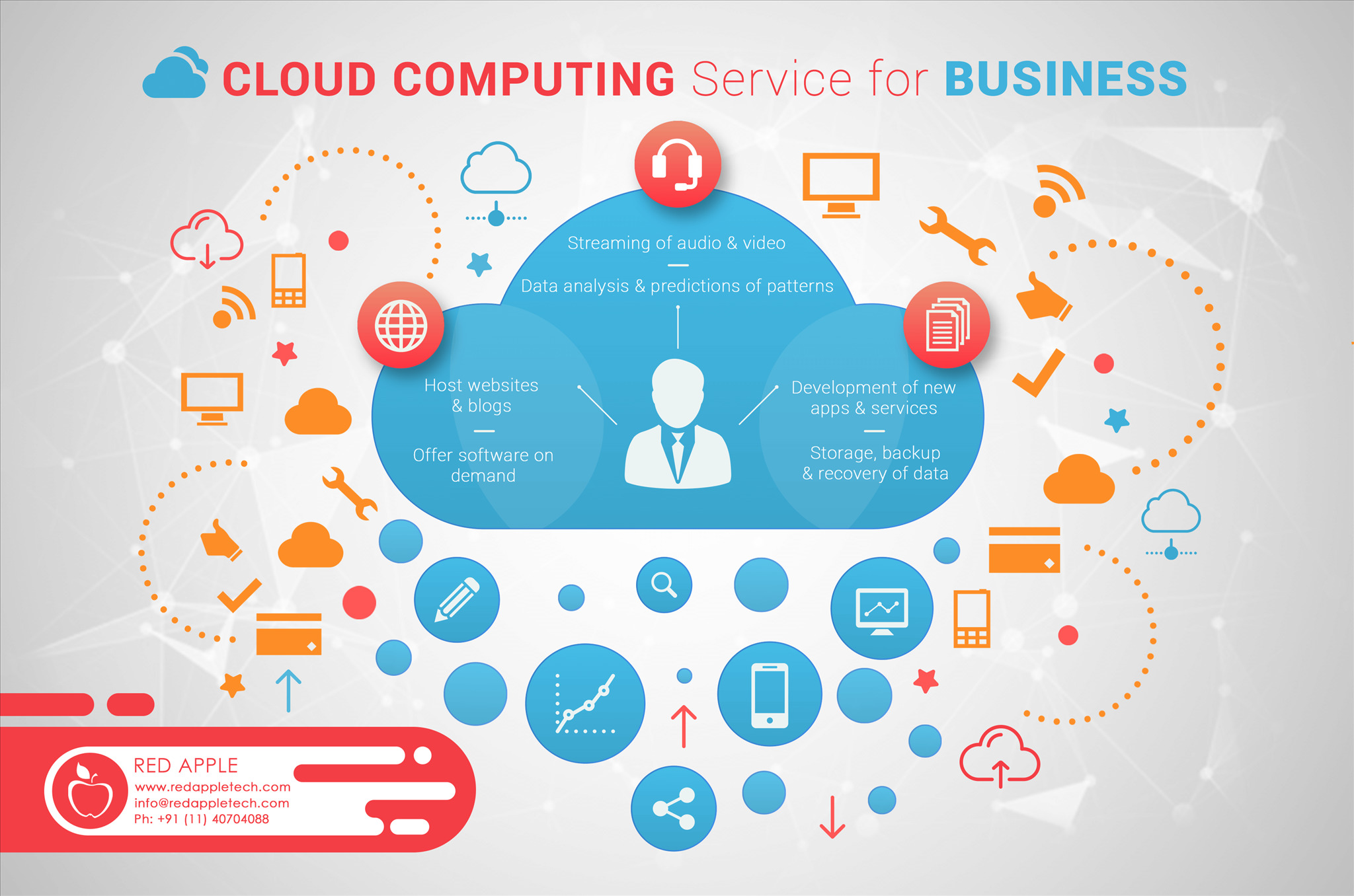Streamline IT Management With Cloud Services
In today's rapidly developing digital landscape, the role of IT management is coming to be significantly intricate. Organizations are constantly looking for means to simplify their IT operations to stay competitive and agile. Cloud services have emerged as a practical service for businesses looking to enhance performance, minimize prices, and enhance general IT performance. By embracing cloud modern technology, companies can attain higher versatility, scalability, and safety in handling their IT facilities. Exactly how exactly do these cloud solutions transform traditional IT monitoring methods? Let's discover the transformative effect of leveraging cloud services on IT procedures and the essential factors to consider for successful implementation.
Advantages of Cloud Services

Moreover, cloud solutions make it possible for companies to boost their functional effectiveness by improving processes and decreasing the time and sources needed for handling IT facilities. With cloud services, companies can automate regular jobs, such as software program updates and information back-ups, maximizing IT teams to focus on more strategic initiatives that drive business value.

Boosted Scalability and Flexibility
Cloud solutions provide services with unrivaled scalability and adaptability in managing their IT resources effectively. Scalability is a crucial function of cloud solutions that allows companies to quickly readjust their IT resources based on demand. With cloud solutions, organizations can swiftly scale up or down their computer resources, storage capability, and network transmission capacity to meet altering requirements without the demand for substantial upfront investments in equipment. This adaptability makes it possible for organizations to adapt to changing work, seasonal needs, or unanticipated growth without experiencing downtime or performance problems.
Moreover, cloud services supply the flexibility for employees to gain access to business information and applications from anywhere, any time, and from any kind of tool with an internet connection. This ability improves performance and cooperation amongst remote groups or employees working in different places. In addition, cloud solutions provide the flexibility to choose from a variety of solution designs, such as Facilities as a Service (IaaS), Platform as a Solution (PaaS), or Software Application as a Solution (SaaS), based on the specific needs of business. The enhanced scalability and flexibility provided by cloud services encourage organizations to enhance their IT operations and remain active in today's dynamic market environment.

Cost-Effectiveness and Cost Savings
With the ability to effectively allocate resources based on demand, services making use of cloud solutions can harness substantial cost-effectiveness and understand significant financial savings in their IT procedures. In addition, cloud solutions lessen maintenance expenses by moving the responsibility of equipment maintenance and software application updates to the service provider. Overall, the cost-effectiveness and financial savings accomplished through cloud solutions enable organizations to reapportion sources towards innovation and development site here initiatives.
Improved Security and Conformity
Enhancing the overall protection position and making certain regulative conformity are critical factors to consider for companies leveraging cloud solutions in their IT management approaches. Cloud company offer sophisticated security steps, such as information encryption, multi-factor authentication, and automated back-ups, which can bolster a business's protection framework. These providers likewise stick to stringent regulative criteria, such as GDPR, HIPAA, and PCI DSS, helping companies fulfill compliance requirements better.
Executing cloud solutions can boost security by providing streamlined control over gain access to monitoring, monitoring, and data security. This central strategy simplifies safety and security administration and makes certain consistent application of safety and security policies throughout the company. Cloud solutions often provide real-time safety updates and spots, reducing the risk of vulnerabilities and prospective breaches.
Finest Practices for Cloud Application
Applying cloud solutions efficiently calls for an organized strategy that encompasses comprehensive planning and diligent execution. To guarantee a smooth transition to the cloud, organizations ought to begin by conducting an extensive assessment of their existing IT framework and recognizing which work are appropriate for movement. It is necessary to establish clear goals and define vital efficiency indications (KPIs) to determine the success of the cloud application.
Among the most effective techniques for cloud application is to carefully pick a cloud solution copyright that lines up with the organization's needs in terms of security, conformity, scalability, and cost-effectiveness. Additionally, producing an in-depth migration strategy that outlines the steps included, timelines, and obligations is critical for an effective application.
Frequently keeping track of and optimizing cloud sources to ensure effective efficiency and price management is one more essential aspect of cloud implementation finest methods. Continual evaluation of the cloud environment and staying notified concerning updates and brand-new attributes offered by the cloud company can additionally boost the company's cloud strategy. By following these best practices, organizations can improve their IT administration and maximize the benefits of cloud services.
Conclusion
In verdict, leveraging cloud solutions for IT administration offers countless advantages, including enhanced scalability, cost-effectiveness, boosted safety, and compliance. Overall, cloud solutions boost functional efficiency and dexterity in handling IT facilities.
Additionally, cloud solutions supply the flexibility to pick from a selection of service models, such as Infrastructure as a Solution (IaaS), System as a Service (PaaS), or Software as a Solution (SaaS), based on the certain requirements of the business. Furthermore, cloud services minimize upkeep expenses by moving the responsibility of equipment maintenance and software application updates to the service company.Enhancing the overall security posture and ensuring regulatory you could try here conformity are extremely important factors to consider for companies leveraging cloud solutions in their IT monitoring methods.Regularly keeping an eye on and maximizing Read Full Report cloud sources to ensure effective efficiency and cost monitoring is another essential element of cloud implementation finest techniques. Constant evaluation of the cloud environment and staying notified concerning updates and brand-new features provided by the cloud supplier can better enhance the organization's cloud method.